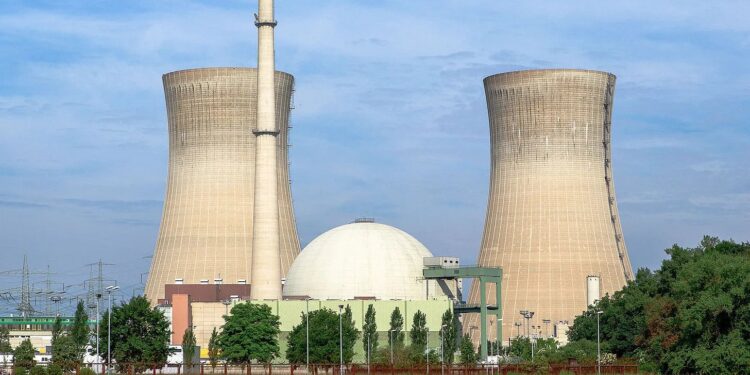The Biden Administration and the far Left of the Democratic Party are congenitally opposed to nuclear power, but on February 22nd the Washington Post noted that Canada, France and Sweden have taken a different path from the U.S. and Germany. The very best comparison of these two options is to examine France versus Germany. According to Next Big Future, “France’s nuclear energy spending was 60% of what Germany spent on renewables. France gets about 400 terawatt-hours per year from nuclear, but Germany gets 226 terawatt-hours each year [from renewables]. And 45 Terawatt-hours of Germany’s renewable power comes from burning biomass which generates air pollution.”
Renewable energy advocates in the U.S. like to say America should be a lot more like Germany when it comes to generating more electricity from wind and solar. Their argument is that wind and solar are already less expensive than fossil fuels.
But if renewables are cheaper, why does Germany now have the second highest electricity price, at 52 cents per kilowatt hour? Only a penny less than Denmark. And amazingly, Germany has decommissioned all of its nuclear power stations due to political pressure from that nation’s Greens.
And, again according to Next Big Future: “Germany’s solar farms will have to be rebuilt every 15-25 years. The wind farms will need to be rebuilt every 20-25 years. Nuclear plants can last 40-80-plus years. This means that it guarantees that the solar and wind farms will have to be rebuilt in 15-25 years.”
And if Germany’s wind and solar farms are more reliable, why did Germany have to resume burning lignite (brown coal) last winter when the wind stopped blowing, the sun stopped shining and the Germans could no longer import enough natural gas from Russia after the February 2022 invasion of Ukraine? Brown coal is 20% water and it generates more CO2 than burning wood.
Plus Next Big Future added:
France completed construction on 76% of its current 58 reactors at an inflation-adjusted cost of $330 billion (€290 billion). The complete buildout of the 58 reactors is less than €400 billion. Germany has spent about €500 billion over the last 20 years to get to 35% renewables. Seven percent of this is burning biomass. France gets almost double the TWh from nuclear than Germany gets from renewables (solar, wind, biomass, hydro). France has gotten about 400 TWh per year from nuclear while all of Germany’s renewables (solar, wind and biomass) amounts to about 220 TWh.
According to Energy Central, “France’s cost was $1 billion to build each terawatt hour per year of clean energy.”
Germany’s cost is $2.5 billion to build each terawatt hour per year of relatively clean energy. The 180 TWh per year of solar and wind is clean but the biomass is not. It generates air pollution. France’s electricity is 41% cheaper for its citizens’ than Germany. Germans now pay 30 euro cents per kwh. while the French pay 18 euro cents per kwh. This was an extra €24 billion per year. Twenty-two years of extra cost is another $500 billion. This is triple the cost of France and does not include the rebuilding expense of solar and wind over the 50-plus years during the expected life of the nuclear reactors.
From 2006 to 2017, Germany increased the cost of electricity for households by 50%. French electricity prices are just 59% of German electricity prices. France produces one tenth the carbon pollution from electricity compared to Germany.
Emmanuel Macron has announced a “renaissance” of the French nuclear industry with a vast programme to build as many as 14 new reactors, arguing that it would help end the country’s reliance on fossil fuels and make France carbon neutral by 2050.
“What our country needs… is the rebirth of France’s nuclear industry,” Macron said in a recent speech.
Atomic energy provides about 70% of French electricity; low-cost nuclear power has been a mainstay of the French economy since the 1970s.
Clearly, France has made far better choices! Its nuclear based approach was far cheaper to install, will last longer and provides electricity at one half the cost. And the Germans veered far off the best course of energy action.
Richard Burcik is the author of two short books, The DNA Lottery and Anatomy of a Lie.













To join in with the discussion please make a donation to The Daily Sceptic.
Profanity and abuse will be removed and may lead to a permanent ban.